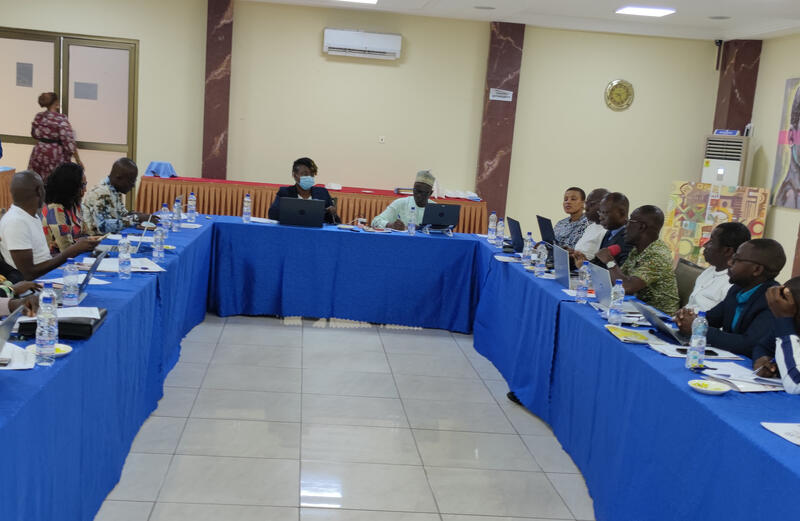The African Union Development Agency (AUDA-NEPAD) has hosted a two-day workshop on biotechnology, gene editing, gene drive and synthetic biology for the African Biosafety Communication Network, from 25-26 October 2022 in Accra, Ghana, reports ITREALMS.“Dealing with complex domains like biotechnology and related emerging technologies is a big challenge, in particular when these technologies seem beyond the understanding of the layman. Media experts play a key role in helping fill the knowledge gap with well-balanced and fact-based information,” Mr Eric Okoree, CEO of the National Biosafety Authority of Ghana and Chair of the meeting said. He welcomed participants and thanked AUDA-NEPAD for the capacity-building initiative.
Dr Jeremy T. Ouedraogo, Head of AUDA-NEPAD ABNE Programme, also highlighted the importance of communication in the success of programme activities. “I am glad such a training initiative is taking place as it will help to fully involve communication practitioners and to capacitate them so that they adequately support the implementation of activities on the ground”, he said.
During the two days, participants were able to hear from experts on biotechnology basics, genome editing, and gene drive principles as well as synthetic biology basics. They also benefited from an introduction to the biosafety communication approach as well as proposed approaches in communicating emerging gene technologies.
Participants of the training included 16 communication experts from 13 African countries. They discussed the different issues faced by the African Biosafety Communication Network and made recommendations. Among the recommendations, they highlighted the need to strengthen the communication component of biotechnology and biosafety programmes, in particular with adequate funding as effective communication comes with costs.
Dr Jeremy T. Ouedraogo, Head of AUDA-NEPAD ABNE Programme, also highlighted the importance of communication in the success of programme activities. “I am glad such a training initiative is taking place as it will help to fully involve communication practitioners and to capacitate them so that they adequately support the implementation of activities on the ground”, he said.
During the two days, participants were able to hear from experts on biotechnology basics, genome editing, and gene drive principles as well as synthetic biology basics. They also benefited from an introduction to the biosafety communication approach as well as proposed approaches in communicating emerging gene technologies.
Participants of the training included 16 communication experts from 13 African countries. They discussed the different issues faced by the African Biosafety Communication Network and made recommendations. Among the recommendations, they highlighted the need to strengthen the communication component of biotechnology and biosafety programmes, in particular with adequate funding as effective communication comes with costs.
In-country biosafety communication efforts, they noted, must specifically be supported for increased public understanding of the complex concepts of biotechnology and biosafety.
Participants also recommended holding periodic meetings of the members of the communication network virtually as well as in person and to diversify the communication platforms by adding for instance an online TV channel that would showcase most of the achievements in the field.





No comments:
Post a Comment